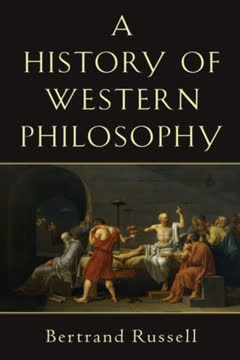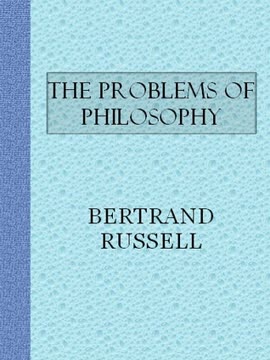Key Takeaways
1. Unhappiness often stems from psychological causes rather than external circumstances
"The psychological causes of unhappiness, it is clear, are many and various. But all have something in common."
Internal factors dominate. Many people attribute their unhappiness to external circumstances, but often the root causes are psychological. These internal factors include:
- Unrealistic expectations
- Negative self-talk
- Perfectionism
- Rumination on past failures
- Fear of the future
Cognitive reframing is key. By recognizing and addressing these psychological causes, individuals can significantly improve their happiness, even without changing their external circumstances. This involves challenging negative thought patterns, practicing self-compassion, and developing a more balanced perspective on life's challenges.
2. Overcoming competition and envy leads to greater contentment
"Envy is the basis of democracy."
Competition breeds discontent. In modern society, the constant drive to outperform others often leads to chronic dissatisfaction. This competitive mindset manifests in various aspects of life:
- Career advancement
- Social status
- Material possessions
- Physical appearance
Cultivate cooperation and gratitude. To overcome this, focus on personal growth rather than comparing oneself to others. Develop a sense of gratitude for what you have, and seek opportunities for cooperation rather than competition. This shift in mindset can lead to more fulfilling relationships and a greater sense of contentment.
3. Developing a sense of purpose and zest for life is crucial for happiness
"Zest is the secret of happiness and well-being."
Embrace life's experiences. Cultivating a zest for life involves approaching experiences with curiosity, enthusiasm, and openness. This attitude can transform even mundane activities into sources of joy and fulfillment.
Find your passion. Discovering and pursuing activities that ignite your passion can provide a deep sense of purpose. This might involve:
- Creative pursuits
- Volunteer work
- Learning new skills
- Exploring nature
- Engaging in meaningful work
By actively seeking out experiences that bring joy and purpose, individuals can significantly enhance their overall happiness and well-being.
4. Cultivating meaningful relationships and affection enhances well-being
"Affection received has a twofold function. We have spoken of it hitherto in connection with security, but in adult life it has an even more essential biological purpose, namely parenthood."
Human connection is vital. Developing and maintaining strong, supportive relationships is crucial for emotional well-being. This includes:
- Romantic partnerships
- Family bonds
- Close friendships
- Community connections
Nurture affection and empathy. Cultivating the ability to give and receive affection enhances the quality of these relationships. Practice empathy, active listening, and expressing appreciation for others. These skills not only improve relationships but also contribute to personal growth and self-esteem.
5. Finding balance between work and leisure contributes to overall satisfaction
"To be able to fill leisure intelligently is the last product of civilisation, and at present very few people have reached this level."
Work-life harmony. Achieving a balance between professional pursuits and personal life is essential for long-term happiness. This involves:
- Setting boundaries between work and personal time
- Prioritizing self-care and relaxation
- Engaging in hobbies and leisure activities
- Cultivating interests outside of work
Meaningful leisure. Develop the ability to enjoy leisure time productively and fulfillingly. This might include pursuing creative hobbies, learning new skills, or engaging in activities that promote personal growth and relaxation.
6. Embracing impersonal interests broadens perspective and reduces stress
"A sense of proportion is very valuable and at times very consoling."
Expand your horizons. Cultivating interests beyond personal and professional concerns can provide a valuable sense of perspective and reduce stress. These impersonal interests might include:
- Reading about history or science
- Appreciating art and culture
- Following current events
- Engaging in philosophical discussions
Mental refreshment. By engaging with topics and ideas outside of one's immediate concerns, individuals can experience mental refreshment and gain a broader understanding of the world. This expanded perspective can help put personal problems into context and reduce overall stress levels.
7. Adopting a rational approach to life's challenges promotes emotional stability
"The man who has passed beyond it by the help of reason has reached a higher level than the man who has never experienced either the sickness or the cure."
Reason as a guide. Developing the ability to approach life's challenges rationally can lead to greater emotional stability and resilience. This involves:
- Analyzing situations objectively
- Considering multiple perspectives
- Making decisions based on evidence rather than emotion
- Practicing problem-solving skills
Emotional intelligence. Combining rational thinking with emotional awareness allows for better management of one's feelings and responses to challenging situations. This balanced approach can lead to more effective decision-making and improved overall well-being.
8. The importance of overcoming the fear of public opinion
"Against this fanatical temper there is no better prophylactic than a large conception of the life of man and his place in the universe."
Liberation from social pressure. Overcoming the fear of public opinion is crucial for personal growth and authenticity. This involves:
- Developing a strong sense of self
- Critically evaluating societal norms
- Standing up for one's beliefs
- Embracing individuality
Broader perspective. By cultivating a wider understanding of human life and the universe, individuals can gain the confidence to pursue their own path without being overly concerned with others' judgments. This broader perspective allows for greater personal freedom and fulfillment.
9. Recognizing the value of family and parenthood in personal fulfillment
"Parenthood, which used to be a triumphant exercise of power, has become timid, anxious, and filled with conscientious doubts."
Modern parenting challenges. While family and parenthood can be significant sources of happiness, modern society has introduced new challenges and anxieties. These include:
- Balancing career and family life
- Navigating changing societal expectations
- Addressing technological influences on family dynamics
- Dealing with economic pressures
Embrace the journey. Despite these challenges, recognizing the intrinsic value of family relationships and the personal growth opportunities offered by parenthood can lead to profound fulfillment. Focus on creating meaningful connections, fostering open communication, and celebrating the joys of family life while acknowledging its complexities.
Last updated:
FAQ
What's "The Conquest of Happiness" about?
- Purpose of the book: "The Conquest of Happiness" by Bertrand Russell aims to address the causes of unhappiness and suggest methods for achieving happiness through well-directed effort.
- Target audience: It is written for the general public, not just the learned or philosophical, and is based on common sense and Russell's personal experiences.
- Structure: The book is divided into two parts: the causes of unhappiness and the causes of happiness, exploring various psychological and social factors.
- Overall message: Russell believes that many people can achieve happiness by changing their habits and perspectives, focusing on external interests rather than self-centered concerns.
Why should I read "The Conquest of Happiness"?
- Practical advice: The book offers practical advice on overcoming unhappiness and achieving a fulfilling life, making it relevant for anyone seeking personal growth.
- Timeless insights: Despite being published in 1930, Russell's observations on human nature and society remain applicable to modern life.
- Philosophical perspective: It provides a philosophical perspective on happiness, blending Russell's logical reasoning with personal anecdotes.
- Self-improvement: Readers can gain insights into their own behaviors and thought patterns, helping them to make positive changes in their lives.
What are the key takeaways of "The Conquest of Happiness"?
- External focus: Happiness is more likely when individuals focus on external interests and relationships rather than being self-absorbed.
- Balance of effort and resignation: A balance between striving for goals and accepting what cannot be changed is crucial for happiness.
- Role of affection: Feeling loved and giving love are essential components of a happy life, providing a sense of security and connection.
- Importance of work: Engaging in meaningful work that utilizes one's skills and contributes to a larger purpose can be a significant source of happiness.
What are the best quotes from "The Conquest of Happiness" and what do they mean?
- "The secret of happiness is this: let your interests be as wide as possible, and let your reactions to the things and persons that interest you be as far as possible friendly rather than hostile." This quote emphasizes the importance of having diverse interests and maintaining a positive attitude towards others.
- "To be without some of the things you want is an indispensable part of happiness." Russell suggests that the pursuit of desires, rather than their fulfillment, is what brings happiness.
- "The happy man is the man who does not suffer from either of these failures of unity, whose personality is neither divided against itself nor pitted against the world." This highlights the importance of internal harmony and a sense of connection with the world for achieving happiness.
- "The man who is unhappy will, as a rule, adopt an unhappy creed, while the man who is happy will adopt a happy creed." Russell argues that beliefs often reflect one's emotional state rather than being the cause of it.
How does Bertrand Russell define happiness in "The Conquest of Happiness"?
- Simple needs: Russell defines happiness as the fulfillment of simple needs such as health, love, successful work, and social respect.
- External interests: Happiness involves directing one's passions and interests outward, engaging with the world rather than focusing inward.
- Freedom from self-centeredness: A happy person is free from self-centered passions like fear, envy, and self-pity, which imprison the mind.
- Integration with life: Happiness is found in feeling part of the stream of life, with a sense of unity and connection to the world.
What causes unhappiness according to "The Conquest of Happiness"?
- Self-absorption: Unhappiness often stems from being overly focused on oneself, leading to fear, envy, and a sense of sin.
- Social pressures: Modern social systems and expectations can create stress and dissatisfaction, contributing to unhappiness.
- Misguided beliefs: Mistaken views of the world and ethics can destroy natural zest and appetite for life, leading to unhappiness.
- Lack of external interests: Without genuine interests in the world, individuals may become bored and dissatisfied with life.
What solutions does Bertrand Russell offer for achieving happiness in "The Conquest of Happiness"?
- Cultivate external interests: Develop a wide range of interests outside oneself to prevent self-absorption and promote happiness.
- Balance effort and resignation: Strive for goals while accepting what cannot be changed to maintain a sense of peace and contentment.
- Foster affection: Build and maintain loving relationships to create a sense of security and connection.
- Engage in meaningful work: Find work that utilizes one's skills and contributes to a larger purpose, providing satisfaction and fulfillment.
How does "The Conquest of Happiness" address the role of work in achieving happiness?
- Prevents boredom: Work fills time and prevents the boredom that can arise from having nothing to do.
- Opportunities for success: It provides chances for success and ambition, contributing to a sense of achievement.
- Exercise of skill: Engaging in skilled work can be pleasurable and fulfilling, offering satisfaction beyond mere financial gain.
- Constructive purpose: Work that involves building or creating something of value can be a significant source of happiness.
What is the significance of affection in "The Conquest of Happiness"?
- Sense of security: Feeling loved provides a sense of security, which is crucial for happiness and zest for life.
- Reciprocal affection: Genuine, reciprocal affection enhances happiness by creating a mutual sense of joy and connection.
- Avoids possessiveness: Healthy affection is not possessive or controlling but respects the individuality of others.
- Foundation for relationships: Affection is the foundation for meaningful relationships, which are essential for a fulfilling life.
How does Bertrand Russell view the family in "The Conquest of Happiness"?
- Source of happiness: The family can be a significant source of happiness through parental affection and the joy of raising children.
- Modern challenges: Russell acknowledges the disorganization and challenges faced by modern families, affecting their ability to provide happiness.
- Respect for individuality: Successful family relationships require respect for each member's individuality and personality.
- Balance of roles: Parents should balance their roles, avoiding possessiveness and allowing children to develop independence.
What role does resignation play in "The Conquest of Happiness"?
- Acceptance of the inevitable: Resignation involves accepting what cannot be changed, reducing unnecessary stress and frustration.
- Balance with effort: It should be balanced with effort, allowing individuals to strive for goals while accepting limitations.
- Prevents emotional waste: Resignation helps prevent the waste of energy on minor troubles and unavoidable misfortunes.
- Unconquerable hope: True resignation is rooted in hope and a broader perspective, not in despair or defeat.
How does "The Conquest of Happiness" suggest overcoming self-centeredness?
- Develop external interests: Cultivate genuine interests in the world and other people to shift focus away from oneself.
- Practice courage: Engage in exercises to build moral and intellectual courage, reducing fear and self-absorption.
- Challenge irrational beliefs: Confront and dispel irrational beliefs, such as a sense of sin or self-pity, to free the mind.
- Embrace integration: Seek integration within oneself and with the world, fostering a sense of unity and connection.
Review Summary
The Conquest of Happiness receives mostly positive reviews for its practical advice on achieving happiness through objective living, wide interests, and affectionate relationships. Readers appreciate Russell's clear writing style and relatable examples, though some find parts outdated. The book's division into causes of unhappiness and happiness is praised for its insight into human psychology. While some criticize its lack of scientific backing, many find Russell's observations accurate and helpful. Overall, readers value the book's wisdom and its potential to guide them towards a happier life.
Similar Books






Download PDF
Download EPUB
.epub digital book format is ideal for reading ebooks on phones, tablets, and e-readers.










